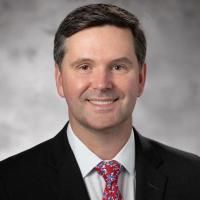Delayed presentation of urethrocutaneous fistulae after hypospadias repair.
Date
2020-01-29
Journal Title
Journal ISSN
Volume Title
Citation Stats
Abstract
BACKGROUND:Delayed urethrocutaneous fistula (UCF) presentation after hypospadias repair is rarely reported. The aim of this study is to report our experience with delayed UCF presenting more than 5 years after hypospadias repair. METHODS:We conducted a retrospective review of patients who underwent UCF repair (CPT codes 54,340 and 54,344) at our institution between 1997 and 2017. Delayed UCF presentation was defined as a single normal urinary stream after initial hypospadias repair and subsequent presentation of a UCF/s urinary stream more than 5 years after initial hypospadias or UCF repair. Demographic and clinical data were reviewed after approval from our institutional review committee. RESULTS:We identified 12 patients with delayed UCF. The mean age at hypospadias repair was 12.3 months (Range 6-32). The mean time to delayed UCF presentation was 11.5 years (Range 7.1-15.8). Four patients with delayed UCF (33.3%) required additional surgery for UCF recurrence with a mean time to recurrence of 2.2 years (Range < 1-5.6). CONCLUSIONS:Delayed UCF presentation can occur more than 15 years after initial repair. Pubertal penile skin changes and increased genital awareness in older children may be contributing factors as all but one presented at age 10 years or older. LEVEL OF EVIDENCE:III.
Type
Department
Description
Provenance
Citation
Permalink
Published Version (Please cite this version)
Publication Info
Johnston, Ashley W, Ghalib A Jibara, J Todd Purves, Jonathan C Routh and John S Wiener (2020). Delayed presentation of urethrocutaneous fistulae after hypospadias repair. Journal of pediatric surgery. 10.1016/j.jpedsurg.2019.12.025 Retrieved from https://hdl.handle.net/10161/20590.
This is constructed from limited available data and may be imprecise. To cite this article, please review & use the official citation provided by the journal.
Collections
Scholars@Duke

J Todd Purves

Jonathan Charles Routh
I am a pediatric urologist and health services researcher who is interested in caring for children with urological problems, conducting research on how to improve that care, and mentoring young researchers to ensure that the next generation does both better than I currently can.
My clinical interests include minimally-invasive surgery, neurogenic and non-neurogenic voiding dysfunction, complex urologic reconstruction (particularly in children with spina bifida), and pediatric urologic oncology (particularly Wilms tumor and rhabdomyosarcoma). My research has been funded by awards from the NIH, CDC, FDA, and multiple foundations and industry partners, and during my time on faculty at Duke I have had the pleasure of collaborating with many groups and individuals around the world on a number of projects. Over the past 15 years, I have formally mentored nearly 3 dozen undergraduates, medical students, urology residents, post-doctoral students, and junior faculty members across multiple disciplines (pediatrics, urogynecology, urology, and nursing).

John Samuel Wiener
As a general pediatric urologist, Dr. Wiener is involved with all aspects of pediatric urology as a clinician and researcher. His research interests are most focused, however, on the urologic management of neurogenic bladder and spina bifida and the molecular biology involving development of the genitourinary tract and disorders.
Dr. Wiener is the principal investigator at Duke for The National Spina Bifida Patient Registry and Urologic Management of Young Children with Spina Bifida protocol administered by the Centers for Disease Control and Prevention. These projects began at Duke in 2011 and 2015, respectively.
Dr. Wiener was previously a project director for the P50 Center for Undiagnosed Pediatric and Urogenital Disorders.
Dr. Wiener has served in national leadership positions in pediatric urology including President of the Society of Fetal Urology, Executive Council of Society for Pediatric Urology, and the Examination Committee of the American Board of Urology. He is currently on the Board of Directors of the Spina Bifida Association
Unless otherwise indicated, scholarly articles published by Duke faculty members are made available here with a CC-BY-NC (Creative Commons Attribution Non-Commercial) license, as enabled by the Duke Open Access Policy. If you wish to use the materials in ways not already permitted under CC-BY-NC, please consult the copyright owner. Other materials are made available here through the author’s grant of a non-exclusive license to make their work openly accessible.
